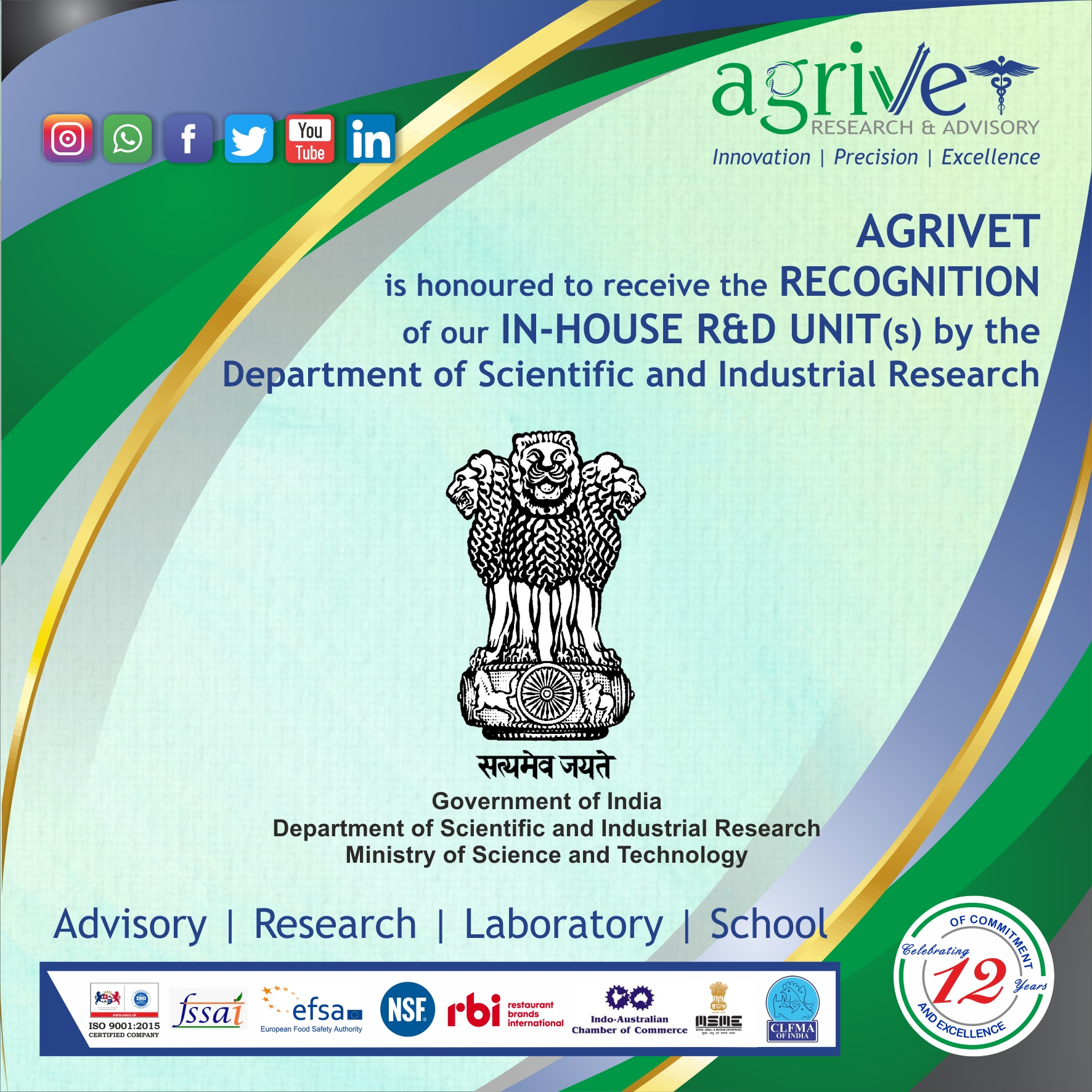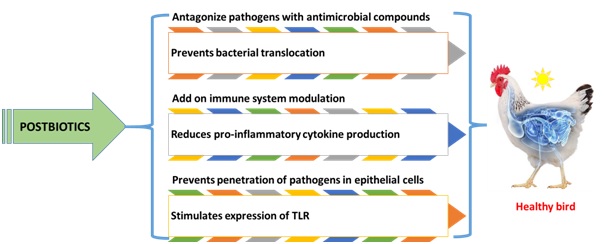
The poultry industry needs innovative and practical solutions if it is to expand sustainably and in accordance with consumer demands for animal welfare and a reduction in the use of antibiotics. These remedies should be more effective and all-natural than the instruments on which we have long relied, such as chemicals and antibiotics. The development of probiotics, prebiotics, phytogenics, and other substances built on the benefits of natural resources like yeast, microorganisms, or plants started these changes many years ago. To harness the benefits of nature in several ways we need more technical and sustainable innovative solutions to the new age challenges.
Postbiotics, often referred to as metabiotics, biogenics, or metabolites, are soluble components (metabolic products or byproducts) secreted by living bacteria or released following bacterial lysis that help the host physiologically. These are modern, non-antibiotic growth promoters (AGPs) for chicken. Postbiotics have a number of antibacterial elements, such as bacteriocins (short-chain fatty acids, peptides, and proteins), which can lower the pH of the gut, stop the formation of infections, and afterwards have a favourable effect on the health of chickens.Postbiotics also include nutrients such as vitamins B and K, amino acids, and antimicrobial peptides that help to slow down the growth of harmful bacteria. Other postbiotics such as short-chain fatty acids help healthy bacteria flourish. Bacterial lysates, cell-free supernatants from bacteria and yeast, cell wall fragments, enzymes, exopolysaccharides and lipopolysaccharide are various postbiotics.
Studies has shown that postbiotics strengthen immune function and improve digestive health by interacting naturally with the biology of the bird. Studies have demonstrated that when postbiotics are provided to chickens, there is an increase in phagocytic cell sensitivity, particularly macrophages and natural killer cells, through the production of cytokines; this results in the prompt and intended induction of an innate immune response or inflammation. All types of poultry (broilers, layers/breeders, turkeys, and ducks) have been proven to benefit greatly from the usage of postbiotic. The postbiotic has consistently demonstrated its capacity to assist birds in being resilient and achieving improved production performance by optimising the intestinal microbiota, lowering pathogen pressure, supporting gut morphology, and increasing natural defences.Postbiotic significantly increases birds’ body weight, under different conditions, necrotic enteritis (Clostridium perfringens) challenge, heat stress challenge or under field conditions in different places in the world.
 Figure: Health benefits of Postbiotics
Figure: Health benefits of Postbiotics
Getting the best development and FCR outBecause postbiotics are not based on live microbes, there is no need to worry about the live cells surviving the pelleting process, which is a huge advantage for usage in animal feed. Postbiotic products are created using fermentation technology, making them highly stable with long shelf lives and simple to include into feed manufacturing processes like extrusion (even tested at 145 °C for 30 min.) and pelleting (95 °C). They are also risk-free and unlikely to produce toxicity. In terms of function, the metabolites are more consistent with a wider mode of action and are easily absorbed by the biological system of birds.